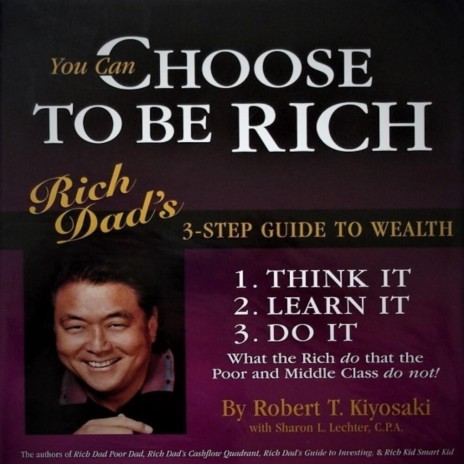
Financial Education Lyrics

- Genre:Spoken Word
- Year of Release:2023
Lyrics
And the fourth myth is the importance of going to school and getting a good education
Now, I'm not against education. Like I said, scholastic education, what you get in school
Is very important. Professional education is also very important.
But it's the education you're not getting that's costing you the most money, in my point of view
One of the problems I had with just a traditional school system
Is that they teach you such things as don't cooperate on tests.
In other words, you take tests on your own. If you cooperate at test time,
The teachers call that cheating. In the real world, the people who make the most money
Are people who cooperate. A school teacher will look at cooperation and say, oh,
They're cheating. The thing that Rich Dad used to say to me
Was that business and investing are team sports. In other words, the reason I win financially
Is because I have a great business team. I have accountants, attorneys, stockbrokers, real estate brokers,
Financial planners, insurance salesmen, bankers as part of my team.
The average person comes out of school with this idea that I have to do it on my own.
I'm going to be John Wayne or Hercules. And they try and invest against a team.
That'd be like me going on the football field, and so I'm going to take on the Oakland Raiders, let's say.
There's 15 of them, but I'm going to take them on on my own.
That's one of the worst habits you learn from school.
Is you learn to do things on your own. If you want to be rich, you better have a team.
But the biggest thing is that this myth that good grades are important.
I know good grades are important in school, but my Rich Dad used to say to me,
My banker has never once asked me for my report card.
My banker has never once said to me, you know, Robert, what was your grades?
Did you have straight A's? And if I showed I had straight A's, they're not oh, let me give you a million dollars.
The banker doesn't care if I was a straight A student or a straight F student.
What the banker wants to see is found in lesson number two of *Rich Dad Poor Dad*,
The Importance of Financial Literacy. The banker asks you for a financial statement,
Income, expenses, assets, liability. Your financial statement is your report card once you leave school.
Your financial statement is your report card of how you're doing after you leave school.
Your financial statement measures how smart you are financially.
You could be an academic genius, but a financial moron.
And just because you're an academic genius with great grades, the banker will look at your financial statement
And say, I'm sorry, I can't give you the loan because you don't know what to do with your money.
You're abusing money. And so many people are going out today thinking that if I borrow more money,
That'll solve my problem. That's financial stupidity. You know, you don't do it that way.
So the point I'm making here is this, is that your financial statement is your report card.
In school, we got report cards what, every three or four months?
And you should do the same thing, is once a month, you should show your financial report card,
Your financial statement to your banker or to your accountant. That way you can make corrections.
You know, one thing good about having bad grades once a quarter is at least there's a chance for you to make a correction.
But for people who leave school thinking that good grades are it, that's all you need to do,
But have no financial report card, one day they wake up, age 65, and the world says, uh-uh, good grades,
But you failed financially. At age 65 is too old to find out that you failed financially on your report card.
My poor dad did not find out, although he was a straight A student, that financially at age 65, he had a straight F student.
You don't want to wake up later in life and find out that you had failing grades.
You want to find out as early as possible so you can make corrections.
And that's the value of financial statement. I'll say it again. Your financial statement is your report card
Once you leave school.
And the fifth myth is that your house is an asset.
Now I'll say it again. I'm not saying don't buy a big house or a nice house. I like my big house.
But the point here is this. If you can read a financial statement, you can tell whether your house is an asset or liability.
What determines if something is an asset or liability is not what your banker says or what your accountant says.
What determines assets or liability is the most important single word in business, and that word is cash flow.
And I've said it before, but I'll say it again. If you buy a house and you rent it out,
And that cash flows into your pocket as a profit, then that house is an asset.
But if you buy a house and only you and your family live in it and it's taking money out of your pocket every month,
At that moment that house is a liability. So the biggest mistake that people make in the middle class is they work hard.
They have tax problems. They go to their accountant and say, how can I solve this tax problem?
The guy says, well, I should buy a house because you get a tax write-off for it.
What that accountant is saying to you is that for every dollar you give in taxes, the government will let you take a 30 cents deduction.
For a dollar out, they'll give you a 30 cents tax break on it.
If that sounds like a good investment to you, you give me a dollar and I'll give you 50 cents back.
I'll beat the government's offer. But many people actually think their house is an asset
And it's a good tax break and all this, and that's what gets them trapped. They do not know
There's between assets and liabilities. There's one more thing that they don't tell you is that
Once your income starts passing around approximately $125,000 in the U.S., you begin to lose that tax break.
So if you're an employee working hard, paying more taxes and buying a bigger house,
You now have a triple hit going against you in taxes.
More Lyrics from Robert T. Kiyosaki Songs
-
Cash Flow and Leverage lyrics
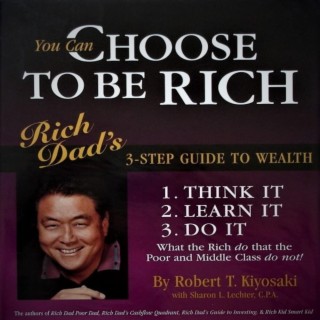
-
Choose To Be Rich lyrics

-
Introduction / Background lyrics

-
Don't Work For Money / Financial Literacy lyrics

-
Broke is Temporary lyrics

-
New Rules For The Information Age lyrics

-
Think Big / Think Small lyrics

-
What You Will Learn lyrics

-
Misconceptions About Being Rich lyrics

-
Your Ideas Are Your Reality lyrics

-
Generosity lyrics

-
Myths Of The Poor And Middle Class lyrics

-
The Importance of Numbers lyrics

-
Assets And Doodads lyrics
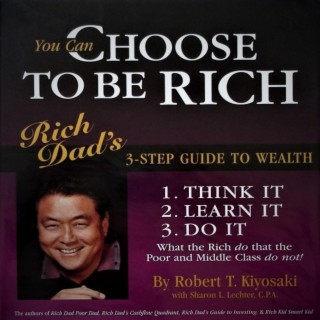
-
Analyzing Your Financial Statement lyrics

-
Cindy lyrics

-
Dale And Susie lyrics

Similar Songs
-
Homeshooling: Is Homeschooling Right for Your Family? - Part 15

-
Generosity

-
Homeshooling: Is Homeschooling Right for Your Family? - Part 14

-
Think Big / Think Small

-
Homeshooling: Is Homeschooling Right for Your Family? - Part 8

-
Interest Rates / Supply And Demand
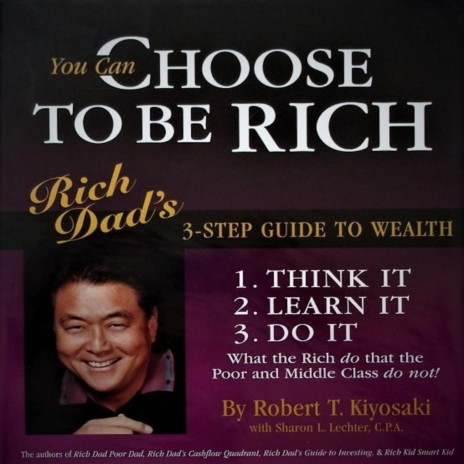
-
Homeshooling: Is Homeschooling Right for Your Family? - Part 3

-
Homeshooling: Is Homeschooling Right for Your Family? - Part 22

-
101 Ways to Build Happy, Lasting Relationships - Part 1
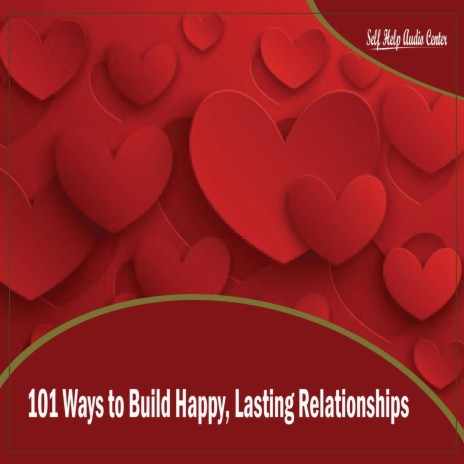
-
Homeshooling: Is Homeschooling Right for Your Family? - Part 19

-
Homeshooling: Is Homeschooling Right for Your Family? - Part 11

